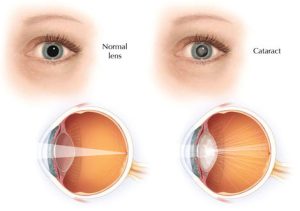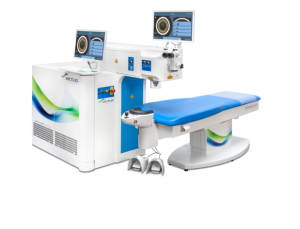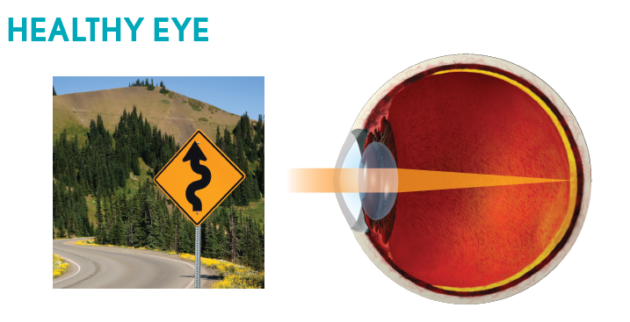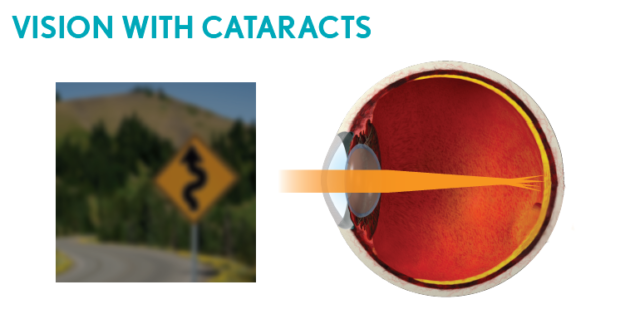Cataracts
 What is a cataract?
What is a cataract?
Cataracts occur when the natural lens of the eye becomes cloudy, causing things to look blurry, hazy, or less colorful.
Cataract Symptoms:
- Blurry vision
- Difficulty with night vision or glare from driving at night
- Difficulty seeing street signs or TV captions
- Monocular Double Vision (seeing two images out of one eye)
What causes cataracts?
Aging is the most common cause of cataracts and they typically develop slowly. The longer you live the more likely you will develop cataracts at some point in your life. Developing cataracts at a younger age can also occur, but it is less common.
Additional causes of cataracts:
- Genetics, family history of having cataracts
- Medical problems, most commonly diabetes
- A previous eye injury, eye surgery, or radiation treatments on your upper body
- Ultraviolet (UV) damage from overexposure to sunlight
Tip: Protecting your eyes from the sun’s UV light rays by wearing sunglasses may slow down the development of cataracts.
How are cataracts treated?
Cataract surgery is a safe and effective procedure. The surgery involves replacing the cloudy natural lens with a clear artificial lens called an intraocular lens (IOL). You should consider cataract surgery when the symptoms of cataracts keep you from doing your daily activities.
Eye Site is Proud to Offer Laser-Assisted Cataract Surgery

As we grow older, cataracts become a natural part of the aging process. It happens when the natural lens of our eyes stiffen and become cloudy, creating vision problems. But the good news is that cataract surgery is a simple and common procedure. While the procedure is normally done completely manually, we are proud to offer our patients a premium option: advanced, laser-assisted surgery with the VICTUS® and LenSx® platforms. This state-of-the-art technology is designed to provide maximum surgical precision and patient comfort during the procedure.
In laser-assisted cataract surgery, doctors use a precision laser beam to facilitate removal of the cloudy lens. New laser technology enables precision performance while minimizing the use of sound waves. Your doctor’s skills are complemented by the computer-guided accuracy and consistency of the laser. This practice is proud to offer the advanced VICTUS and LenSx lasers.
Services
Request Appointment
* indicates required field


Cataract FAQ
What if I have astigmatism? Will I still need glasses after surgery?
Are both eyes done at the same time?
When is it time to have cataract surgery?
Meet The Specialists
Herbert P. Knauf, M.D.
Services
Request Appointment
* indicates required field
